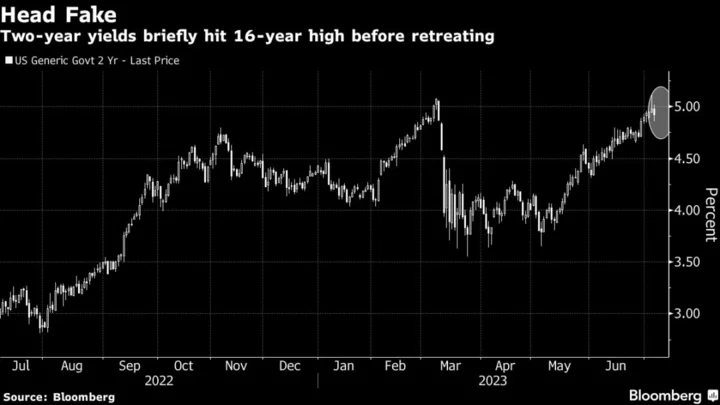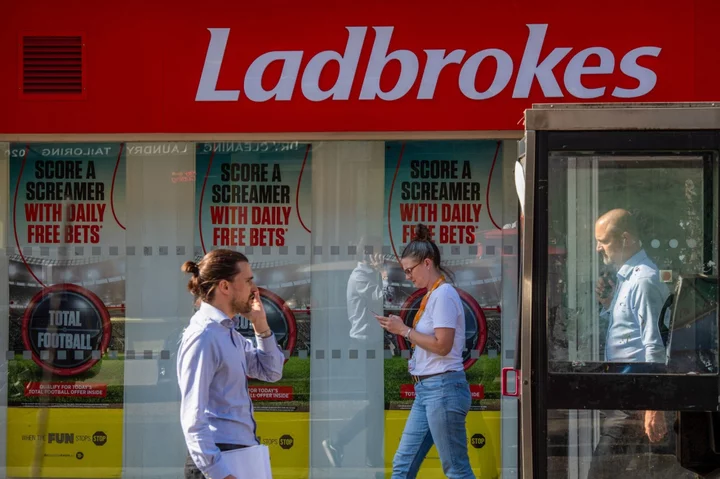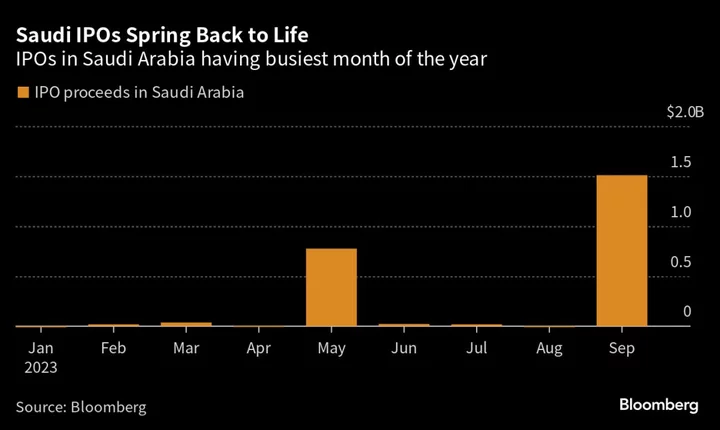The UK government borrowed more than forecast in the first month of the fiscal year as debt interest payments and cost-of-living support measures for consumers drove spending higher.
Spending exceeded revenue by £25.6 billion ($31.8 billion) in April, the Office for National Statistics said Tuesday. That was more than the £19.1 billion economists had expected and the £22.4 billion forecast by the Office for Budget Responsibility.
The figure, the second-highest for the month of April since 1993, highlights the challenge for Prime Minister Rishi Sunak to bring the public finances under control before an election widely expected for next year. It will also make it harder to deliver the tax cuts his colleagues in the ruling Conservative Party are seeking.
Conservatives suffered heavy losses in local elections this month, with many voters angry that the party had presided over a rise in the tax burden to its highest World War II at a time of a brutal cost-of-living crisis.
Sunak and his finance minister, Jeremy Hunt, cut business taxes and increased spending in their budget in March, but have signaled their determination to restore the public finances to health.
“It’s right we borrowed billions to protect families and businesses against the impacts of the pandemic and Putin’s energy crisis,” Hunt said in a statement. “But debt and borrowing remain too high now — which is why it’s one of our priorities to get debt falling.”
Last month, the government spend £3.9 billion on subsidies, largely reflecting the cost of a cap on energy prices that will keep a typical household bill below £2,500 a year until July.
Welfare benefits were £4.5 billion higher than a year ago, boosted by means-tested cost-of-living payments for the poorest households struggling with soaring inflation.
Debt interest costs jumped to £9.8 billion, the highest ever figure for an April since records began in 1997. That surge reflected the fact that a quarter of outstanding government bonds are linked to the Retail Prices Index gauge of inflation, which is well into double digits.
--With assistance from Elina Ganatra.
(Updates with details from the report from fourth paragraph.)









